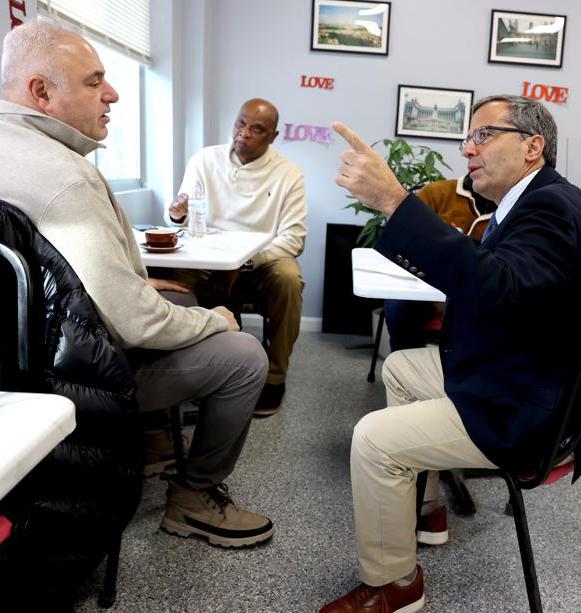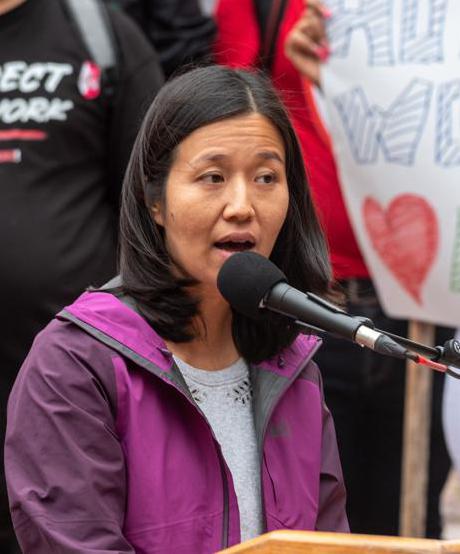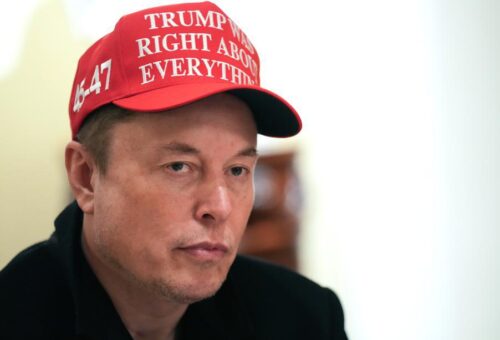
In her bid for a second term as mayor of Boston, can Michelle Wu raise more money than the rich guy trying to unseat her?
The simple answer: No. And she might not need to.
“Mayor Wu will never outraise a billionaire,’’ contends Geoff Why, who served as Wu’s finance co-chair during her 2021 mayoral run. “Michelle has won citywide elections since 2013. … The strategy has always been we win because we get votes from every corner of the city.’’
Of course, that can sound too simplistic. Wu is facing nonprofit leader Josh Kraft, whose father, Robert, is the billionaire owner of the New England Patriots. And if developer Tom O’Brien jumps into the race, Wu will be up against a second challenger who can tap a network of real estate executives eager to replace a mayor they see as hostile to development.
Yet fund-raising has never really been Wu’s forte. Her political prowess comes from her ground game, and she has won every race she has entered, including four as an at-large city councilor. In the 2021 mayoral general election, she beat fellow at-large City Councilor Annissa Essaibi George, winning 64 percent of the votes and all but three wards.
Wu didn’t win the money race that time when you add in super PAC money. Both raised roughly $2.7 million, according to the state Office of Campaign and Political Finance. But the super PAC backing Essaibi George spent $1.9 million, thanks to the deep pockets of New Balance chairman Jim Davis, while entities supporting Wu spent $1.3 million.
Wu’s victory four years ago highlights an important lesson to remember this fall, said political consultant Katie Prisco-Buxbaum, who managed Andrea Campbell’s mayoral campaign in 2021 and is unaligned this time around.
“Money matters, but it’s not the most important thing,’’ Prisco-Buxbaum said. “It’s how you use that money to drive the most important thing, which, at the end of the day, is who is showing up on Election Day and how many of them are voting for you.’’
Of course, getting out the vote is easier if you have money. And you’re starting to see how Wu and Kraft are building their campaign war chests for this year’s race.
In a Boston Globe analysis of February campaign filings, Wu tallied 1,101 donations totaling about $117,000. The average contribution was $106.45, and just over half came from Boston addresses.
At the end of February, Wu had about $1.8 million on hand and has seen a surge in online donations — about $113,000 from 1,643 contributors, according to her campaign — in the week after her strong March 5 testimony defending Boston’s immigration policies before a Republican-led congressional committee.
While Wu benefits from name recognition, longstanding relationships and early endorsements from key unions that can mobilize voters, she should still try to raise as much as she can, because it will put her in a stronger position to buy advertising and build out her campaign infrastructure, Prisco-Buxbaum said.
Still, what makes Kraft and O’Brien (if he gets into the race) formidable challengers is their access to money. Both are well-known and well-liked in business and civic circles. Kraft has hosted a flurry of fund-raisers, from a Seaport gathering of business elites, like billionaire car dealer Herb Chambers and Robert Kraft at Davio’s, to a packed ballroom with locals at East Boston’s Hilton Garden Inn.
Josh Kraft formally launched his mayoral bid in February and by the end of the month had logged 417 donations totaling about $297,000. The average contribution was $712.42 (state campaign rules limit individual contributions to $1,000 per year), and only 28 percent came from within Boston, while Wellesley and Weston donors were well represented.
And Kraft is already tapping his famous father’s far-flung network, which may explain why Los Angeles Chargers owner Dean Spanos and his wife, Susan, show up in campaign filings as donors to a Boston mayoral race.
The reality is that Kraft has access to a lot more money than Wu, but also, political consultants say, he’ll need it. Kraft may have a famous last name, but he remains relatively unknown. He will have to spend a lot of money introducing himself to voters and will also have to spend a lot of money convincing voters that Wu doesn’t deserve another term.
There is a sense that Kraft has unlimited resources, a notion his campaign tries to dispel, despite Forbes Magazine pegging his father’s net worth at $11.8 billion. It turns out that unlike federal election rules, state campaign finance regulations prohibit members of a candidate’s immediate family from contributing or having a leadership role at a super PAC supporting that candidate.
Still, there are no limits on how much a candidate can contribute to their own campaign. Kraft, according to his campaign, is focused on fund-raising, and decisions about his personal contributions will be made later.
“While fund-raising has been strong, it is just one way to measure viability and momentum,’’ said Kraft campaign spokesperson Will Keyser, who noted that Kraft has attracted volunteers, crowds at community events, and advocates offering to help shape policy ideas. “Josh has built a campaign that plans to outperform expectations in every discipline, not just fund-raising.’’
Prisco-Buxbaum said she would advise Kraft to raise money from all over the city to develop a narrative that he has broad support, not just in certain corners. And that can help build a network of grassroots support that will turn out on Election Day.
At Kraft fund-raisers, questions about his ground game come up. In East Boston, where about 150 people gathered over red-sauce pasta and crudité to hear him speak, Kraft brought to the podium Michael Kineavy, his senior campaign adviser who was one of Mayor Thomas M. Menino’s top aides, to explain the strategy. Kineavy kept it simple.
“Right after you leave here, tell people … ‘I met Josh Kraft. I had a conversation. I listened to his message. I’m on board. I want you to get on board too,’ “ said Kineavy. “Tom Menino called that the conversations over the back fence and at the kitchen table. … That is how this is going to get won, one by one with the people that you know and care about you and listen to you.’’
Ultimately, this mayoral race will hinge on who has the best field operation. A Kraft candidacy will test just how much money it takes to build one.
Daigo Fujiwara-Smith of the Globe staff contributed to this report.
Shirley Leung is a Business columnist. She can be reached at shirley.leung@globe.com.

